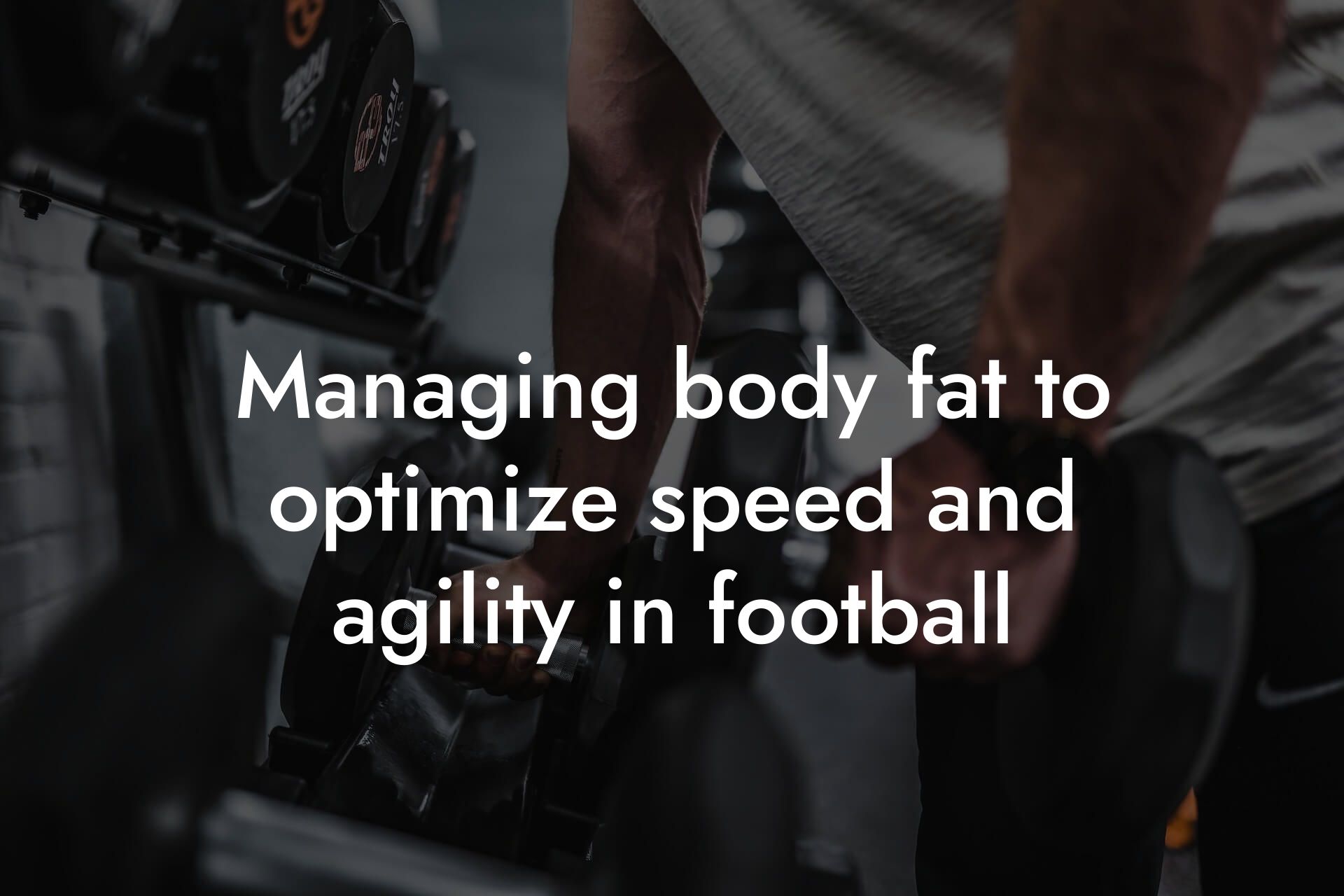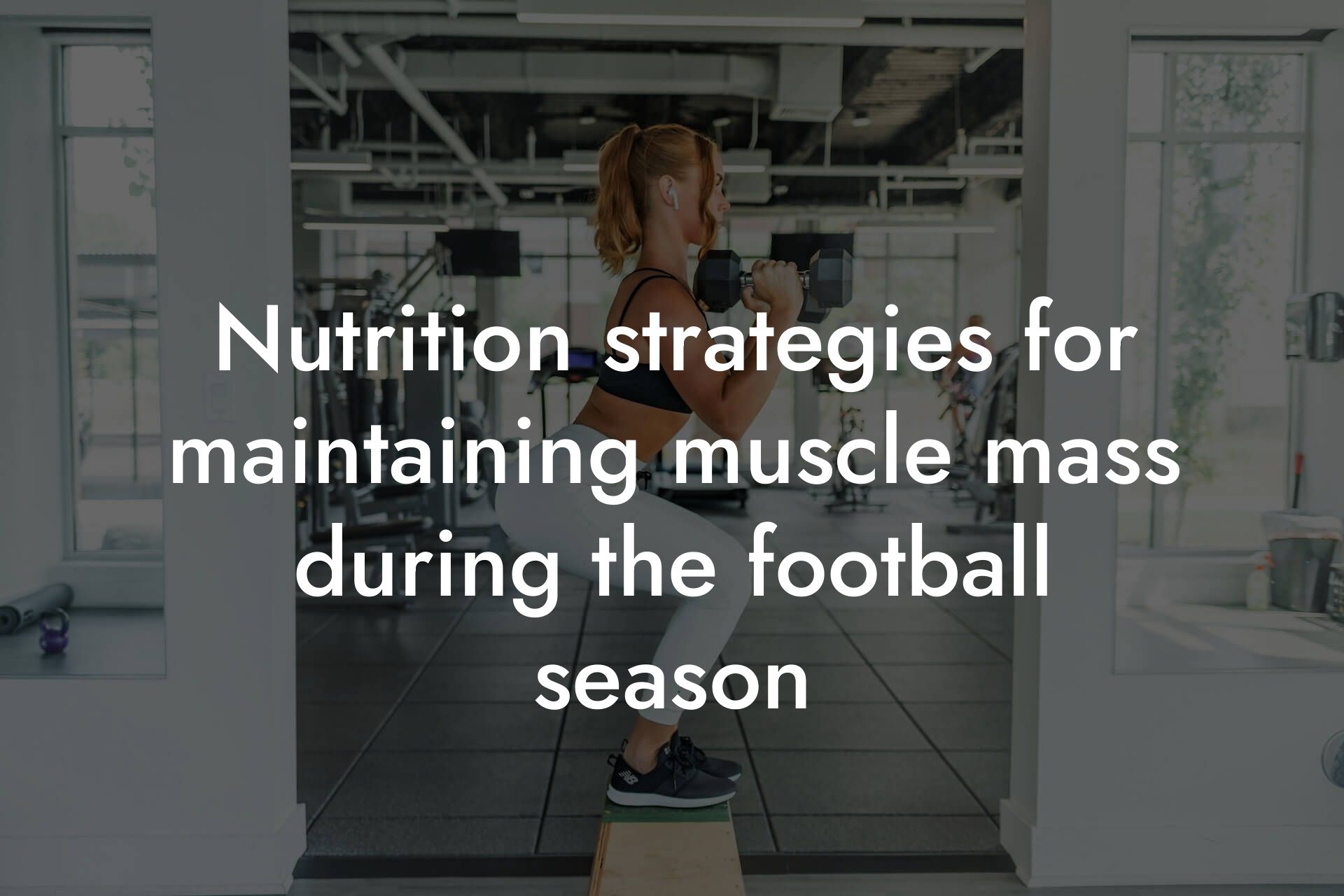As a high-earning professional, you understand the importance of maintaining a healthy and strong physique to excel in your career. For football players, having a robust physical structure is crucial to prevent injuries and perform at their best on the field. One often overlooked aspect of physical fitness is bone density, which plays a vital role in preventing football injuries. In this article, we will delve into the significance of bone density in football, how it affects injury risk, and what steps you can take to improve your bone density.
Table of Contents
What is Bone Density?
Bone density refers to the measure of the amount of minerals, such as calcium and phosphorus, present in your bones. It is an indicator of bone strength and density, with higher bone density indicating stronger bones. Bone density is measured using a DEXA (Dual-Energy X-ray Absorptiometry) scan, which provides a detailed analysis of your bone health. At Tano Performance Group, we use DEXA machines to provide our clients with a comprehensive body assessment, including bone density measurements.
Why is Bone Density Important for Football Players?
Football is a high-impact sport that involves physical contact, rapid movements, and sudden stops. These actions can put immense stress on the bones, making them more susceptible to injuries. Football players with low bone density are at a higher risk of suffering from fractures, osteoporosis, and other bone-related injuries. Strong bones, on the other hand, can absorb the impact of physical contact and reduce the risk of injuries, allowing players to perform at their best.
How Does Bone Density Affect Injury Risk?
Low bone density can increase the risk of injuries in several ways:
- Weakened bones are more prone to fractures, which can occur even with minor trauma.
- Osteoporosis, a condition characterized by brittle bones, can lead to vertebral compression fractures, hip fractures, and other debilitating injuries.
- Stress fractures, which occur due to repetitive stress on the bones, are more common in athletes with low bone density.
- Bone-related injuries can lead to prolonged recovery periods, causing players to miss games and training sessions.
Risk Factors for Low Bone Density in Football Players
Several factors can contribute to low bone density in football players, including:
- Genetics: A family history of osteoporosis or low bone density can increase the risk.
- Age: Bone density naturally decreases with age, making older players more susceptible to bone-related injuries.
- Nutrition: A diet lacking essential nutrients, such as calcium and vitamin D, can impair bone health.
- Hormonal Imbalance: Hormonal changes, such as low testosterone levels, can affect bone density.
- Lifestyle: A sedentary lifestyle, smoking, and excessive alcohol consumption can all contribute to low bone density.
How to Improve Bone Density for Football Players
Fortunately, bone density can be improved with a combination of proper nutrition, exercise, and lifestyle changes. Here are some tips to help football players improve their bone density:
- Eat a Balanced Diet: Focus on consuming calcium-rich foods, such as dairy products, leafy greens, and fortified cereals. Vitamin D, found in fatty fish, egg yolks, and fortified dairy products, is also essential for bone health.
- Engage in Weight-Bearing Exercises: Activities like weightlifting, jumping, and running can help strengthen bones.
- Incorporate Resistance Training: Exercises that work multiple muscle groups, such as squats and lunges, can help improve bone density.
- Get Enough Sleep: Adequate sleep is essential for bone health, as it allows the body to repair and rebuild bones.
- Reduce Inflammation: Chronic inflammation can impair bone health, so it's essential to manage stress and inflammation through meditation, yoga, or other relaxation techniques.
DEXA Scans for Football Players
At Tano Performance Group, we understand the importance of bone density in preventing football injuries. Our DEXA scans provide a comprehensive analysis of your bone health, allowing you to identify areas for improvement. Our expert team will work with you to create a personalized plan to improve your bone density, reducing your risk of injury and optimizing your performance on the field.
Bone density plays a critical role in preventing football injuries. By understanding the importance of bone density, identifying risk factors, and taking steps to improve bone health, football players can reduce their risk of injury and perform at their best. At Tano Performance Group, we are committed to helping high-earning professionals like you achieve their physical goals and maintain a healthy, strong physique. Contact us today to learn more about our DEXA scans and personalized coaching services.
Frequently Asked Questions
What is bone density and why is it important for football players?
Bone density refers to the measure of how dense and strong your bones are. It's a critical aspect of overall health, especially for football players who are at a higher risk of sustaining injuries. Having strong bones can help prevent fractures, breaks, and other bone-related injuries that can keep you sidelined.
How does bone density affect football performance?
Bone density plays a significant role in football performance. Stronger bones can help you maintain power, speed, and agility on the field. Additionally, good bone density can reduce your risk of injury, allowing you to perform at your best without worrying about getting hurt.
What are the risks of low bone density for football players?
Low bone density can increase the risk of fractures, breaks, and other bone-related injuries. This can lead to prolonged recovery times, missed games, and even long-term damage to your bones. Furthermore, low bone density can also affect your overall performance, making it harder to maintain your competitive edge.
How can football players improve their bone density?
Football players can improve their bone density through a combination of proper nutrition, regular exercise, and lifestyle changes. This includes consuming a diet rich in calcium and vitamin D, engaging in weight-bearing exercises, and getting enough sleep. Additionally, reducing the risk of injuries through proper training and equipment can also help.
What are the best exercises for improving bone density in football players?
Weight-bearing exercises such as squats, lunges, and deadlifts are excellent for improving bone density. These exercises help strengthen your bones by stimulating osteogenesis, the process of bone growth. Additionally, high-impact exercises like jumping and running can also help improve bone density.
How important is nutrition in maintaining good bone density for football players?
Nutrition plays a critical role in maintaining good bone density. A diet rich in calcium, vitamin D, and other essential nutrients can help support bone health. Football players should focus on consuming foods like dairy products, leafy greens, and fortified cereals to support their bone health.
Can football players with low bone density still perform at a high level?
While it's possible for football players with low bone density to still perform at a high level, it's not without risks. Low bone density can increase the risk of injuries, which can impact performance and overall health. It's essential for football players to prioritize bone health to maintain their competitive edge.
How can football players reduce their risk of injury due to low bone density?
Football players can reduce their risk of injury due to low bone density by taking proactive steps. This includes engaging in regular exercise, maintaining a healthy diet, and getting enough sleep. Additionally, wearing proper protective gear, using correct techniques, and listening to their bodies can also help reduce the risk of injury.
What role does age play in bone density for football players?
Age can play a significant role in bone density for football players. As we age, our bone density naturally decreases, making us more susceptible to injuries. However, with proper training, nutrition, and lifestyle changes, football players can maintain good bone density even as they age.
How can football players monitor their bone density?
Football players can monitor their bone density through regular bone density tests, such as dual-energy X-ray absorptiometry (DXA) scans. These tests can provide valuable insights into bone health, allowing players to make informed decisions about their training and nutrition.
What are the consequences of ignoring low bone density in football players?
Ignoring low bone density can have severe consequences for football players. It can lead to increased risk of injuries, prolonged recovery times, and even long-term damage to bones. Additionally, low bone density can also impact overall health, making it harder to maintain a healthy lifestyle.
How can football players balance the need for strong bones with the need for a lean physique?
Football players can balance the need for strong bones with the need for a lean physique by focusing on a balanced diet and training program. This includes consuming nutrient-dense foods, engaging in weight-bearing exercises, and incorporating high-intensity interval training (HIIT) to support both bone health and physique goals.
What role does genetics play in bone density for football players?
Genetics can play a role in bone density for football players, but it's not the only factor. While some players may be more prone to low bone density due to genetic factors, lifestyle changes and proper training can still help improve bone health.
How can football players overcome the stigma associated with prioritizing bone health?
Football players can overcome the stigma associated with prioritizing bone health by recognizing the importance of bone health in overall performance. By educating themselves and their teammates about the risks of low bone density, players can create a culture that prioritizes bone health as a key aspect of athletic success.
What are the benefits of prioritizing bone health for football players?
Prioritizing bone health can have numerous benefits for football players. It can reduce the risk of injuries, improve overall performance, and support long-term health. Additionally, prioritizing bone health can also enhance confidence and overall well-being.
How can football players incorporate bone density exercises into their existing training program?
Football players can incorporate bone density exercises into their existing training program by adding weight-bearing exercises, high-impact exercises, and plyometric exercises. These exercises can be incorporated into strength training sessions, conditioning drills, or even warm-up and cool-down routines.
What are the most common myths about bone density and football players?
One common myth is that bone density is only a concern for older athletes. However, bone density is essential for athletes of all ages. Another myth is that bone density is solely determined by genetics, when in fact, lifestyle changes and proper training can significantly impact bone health.
How can football players get their coaches and trainers on board with prioritizing bone health?
Football players can get their coaches and trainers on board with prioritizing bone health by educating them about the importance of bone density in overall performance. By providing evidence-based research and highlighting the benefits of prioritizing bone health, players can create a team culture that supports bone health.
What are the long-term benefits of prioritizing bone health for football players?
Prioritizing bone health can have long-term benefits for football players, including reduced risk of osteoporosis, improved overall health, and enhanced quality of life. Additionally, prioritizing bone health can also support long-term athletic success, allowing players to maintain their competitive edge even as they age.
How can football players make bone health a priority in their daily lives?
Football players can make bone health a priority in their daily lives by incorporating bone-healthy habits into their daily routine. This includes consuming a balanced diet, engaging in regular exercise, getting enough sleep, and managing stress.
What resources are available to football players who want to prioritize bone health?
There are numerous resources available to football players who want to prioritize bone health. This includes working with sports dietitians, athletic trainers, and healthcare professionals who specialize in bone health. Additionally, online resources, such as the Tano Performance Group, provide valuable information and guidance on prioritizing bone health.
How can football players track their progress in improving their bone density?
Football players can track their progress in improving their bone density through regular bone density tests, such as DXA scans. Additionally, players can track their progress through changes in their physique, improvements in their performance, and reductions in their risk of injury.
Here are some related articles you might love...
- Managing body fat to optimize speed and agility in football
- Nutrition strategies for maintaining muscle mass during the football season
- Recovery strategies for football athletes: Nutrition and rest
- Balancing mass and speed: A guide for football athletes
- How DEXA scans can benefit professional football players
- How to maintain peak performance during the football season
- The importance of body composition in football performance
- Strength training tips for football players
- Off-season fitness programs for football players
Zak Faulkner
Zak Faulkner is a leading authority in the realm of physical health and body composition analysis, with over 15 years of experience helping professionals optimise their fitness and well-being. As one the experts behind Tano Performance Group, Zak has dedicated his career to providing in-depth, science-backed insights that empower clients to elevate their physical performance and overall health.
With extensive knowledge of DEXA technology, Zak specializes in delivering comprehensive body assessments that offer precise data on body fat, muscle mass, bone density, and overall physique. His expertise enables individuals to make informed decisions and achieve their fitness goals with accuracy and confidence. Zak’s approach is rooted in a deep understanding of human physiology, combined with a passion for helping clients unlock their full potential through personalised strategies.
Over the years, Zak has earned a reputation for his commitment to excellence, precision, and client-focused service. His guidance is trusted by top professionals who demand the best when it comes to their health. Whether advising on fitness programs, nutritional strategies, or long-term wellness plans, Zak Faulkner’s insights are a valuable resource for anyone serious about taking their health and fitness to the next level.
At Tano Performance Group, Zak continues to lead our Content Team revolutionising how professionals approach their physical health, offering unparalleled expertise that drives real results.




